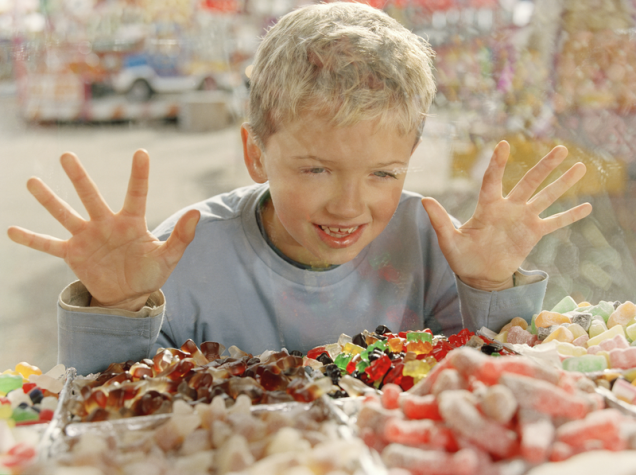W.H. Smith, rue de Rivoli, Paris, a few days ago. A little girl, maybe eight years old, is screeching with rage and frustration in front of a shelf full of chocolate. “Come away Sarah, you can’t have any,” says her mother, with a disturbing lack of conviction. The tantrum rises in volume.
Which is why I rarely take my four-year-old son anywhere that sells sweets (or candy, if you prefer the American version). Gustave is a well-behaved, jolly little chap, but as his name implies he enjoys the good things in life, and chocolate is one of them. (He’s currently eating his way through an advent calendar from La Mère de Famille.)
I definitely won’t be taking him to my local Casino right now. An entire section of the supermarket has been taken over by Kinder and Ferrero Rocher. This is literally a Santa’s grotto of cheap confectionary – an empire of sugar. Every time I see it, I feel angry.
Because sugar is toxic.
Don’t take my word for it. Ask Dr Robert Lustig, of the department of paediatrics at San Francisco University. He has conducted research showing that sugar is linked to diabetes, heart disease and obesity. (See Time magazine, October 27 2015: “Sugar is definitely toxic, a new study says.”)
Fat used to be the villain. But now many scientists are saying that sugar makes you fatter than fat. Needless to say, the marketers of sugary snacks and drinks are unhappy about this. After all, they saw what happened to the tobacco industry. And the first shots against sugar have already been fired.
In the UK, a new report by the parliament’s health committee has called for a tax on sugary drinks and stricter advertising controls. A spokesman from the Advertising Association said the report takes “a narrow, medical perspective.” As opposed to an irresponsible commercial perspective, presumably.
A new villain in town
In the United States, as reported in The New York Times, Coca-Cola is dealing with the negative PR fallout of accusations that it tried to influence research into obesity. Coke helped to set up a nonprofit group called the Global Energy Balance Network. Its scientists were gently encouraged to persuade the public to focus on exercise rather than worrying about the impact of snacks and soft drinks on their health. When Coke’s ties to the group were revealed, the University of Colorado medical school returned its US$1 million grant.
In France, of course, marketers of confectionary, snacks and soft drinks have been obliged since 2007 to put a disclaimer on their ads. It’s a compromise, but it’s better than nothing. A typical one reads: “Pour votre santé, évitez de manger trop gras, trop sucré, trop salé.”
If you were already beginning to dislike sugar, a little research into its history may speed the process along. Because among its many sins, sugar was a motor of slavery.
Sugar cane plants were native to South East Asia and travelled gradually west; starting with India, where sugar granules were first made about 2,000 years ago. Next came the Middle East, where sugar was used in desserts. Crusaders brought “the sweet spice” back to Europe. But we didn’t really get hooked until the 18th century, when we started adding it to tea and using it to make jam. Then we began growing it in our Caribbean colonies – and using slaves to harvest it. Sugar became so profitable that it was known as White Gold.
The writer Angela Stuart wrote a book about this called Sugar in the Blood. A review in The Economist mentions the tiny island of Barbados, which was uninhabited when the English arrived in the 1620s. It became the first colony to exploit enslaved Africans “on an industrial scale.” For 200 years, “king sugar reigned supreme on world markets, as important a commodity then as oil is today.”
The problem today is addiction, not slavery. Our dependence on sugar continues to ravage society. If you work in advertising, this is about to become even bigger news. If you’re a parent, I accept that this may not be the best time of year to reduce your child’s sugar intake. It would be a good New Year’s resolution, though.
One of the most beloved Christmas films among we Brits is Mary Poppins. In its most famous song, the titular nanny sings: “A spoonful of sugar makes the medicine go down.” But maybe it’s better to cut out the sugar, and take your medicine without.




